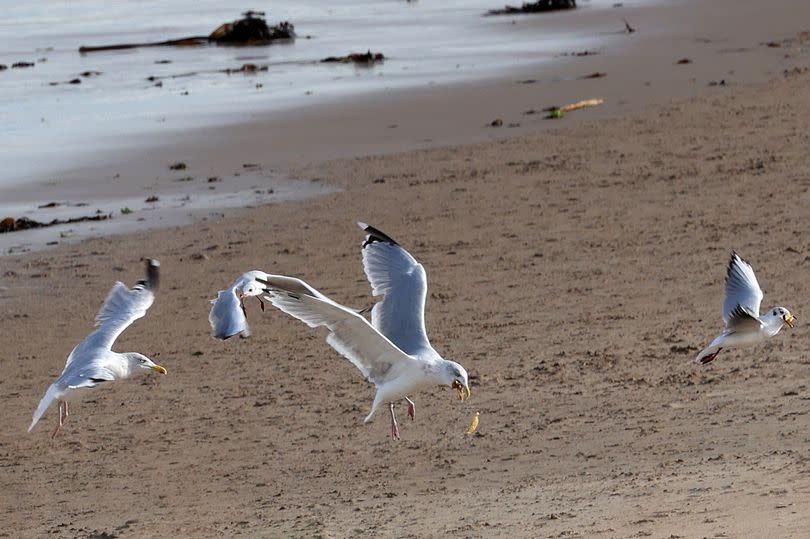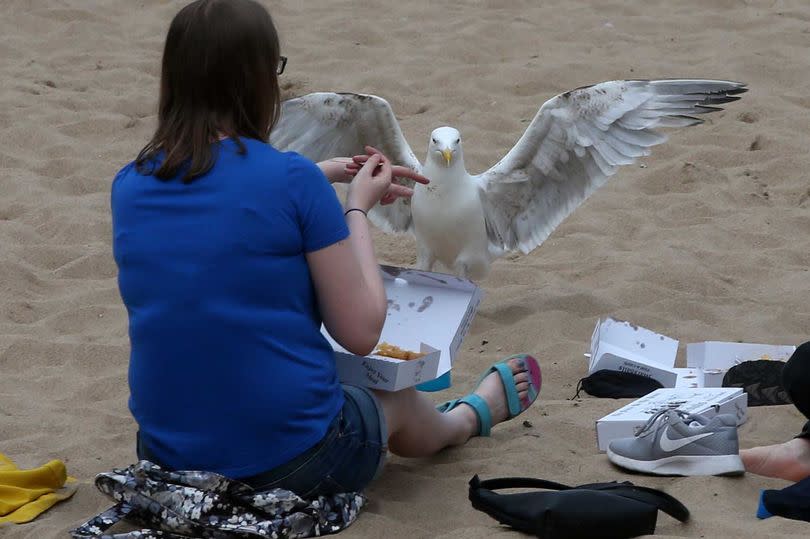Gull warning for visitors heading to North East beaches ahead of May bank holiday

Visitors to the North East coastline have been warned to be wary of gulls ahead of the May bank holiday weekend.
After mating and nest-building in February and March, many gulls will be protecting nests and eggs towards the end of April and into May. During the breeding season, gulls have been known to launch attacks on people who have food or pose a threat to them.
The winged chip thieves can weigh up to a kilogram and have wingspans of up to one metre; causing issues especially in coastal towns like Whitley Bay, Tynemouth, and South Shields. And over their 25 to 30 year lifespans, some even become wily enough to nip into shops and 'steal' bags of crisps.
The British Pest Control Association (BPCA) has reminded people to avoid gulls where possible, as interfering with wild birds, their eggs or nests could lead to prosecution. The Wildlife and Countryside Act 1981 states that all wild birds and their eggs are protected, but people with the appropriate knowledge on licences can take steps if birds are causing a public health and safety concern.
Natalie Bungay, technical manager at BPCA, said: "We love British birds. All wild birds and their eggs are rightfully protected by law in the UK, so it is absolutely vital that holidaymakers, householders or business owners don’t interfere with them.
"However, gulls can pose a serious safety concern. They have been known to attack people unexpectedly, which can be a frightening experience, especially if they draw blood, which can occasionally happen.
"We often think of gulls as a coastal problem – which they can be in seaside towns where people have fed them regularly. But for some time now they have also been an increasing problem in towns and cities away from the coast too."

The BPCA says seaside visitors can avoid attracting gulls by ensuring picnics, fish and chips, or hot dogs are kept covered or eaten out of sight of gulls where possible. However, nesting gulls, which can live for 25 to 30 years, can cause problems for homes and businesses both on the coast and inland, as well as at supermarkets and hospitals.
These buildings can offer ideal nesting sites which are difficult to access and proof. Nests can clog gutters or chimneys, which may cause water overflows, or potential issues with carbon monoxide, as well as bringing a risk of secondary infestation from bird mites, ticks, fleas and beetles.
Natalie added: "Gulls are also protected by the law, so it really is important to seek professional help. There are a variety of bird-proofing measures available, all of which will deter birds without causing them harm, and as gulls are large and heavy, any proofing measures need to be suitable for the job, very heavy duty and correctly installed by a professional.
"Bird prevention, proofing and control is a highly specialised area requiring specific equipment and techniques. Pest professionals are required to try all reasonably practicable non-lethal bird control methods before they consider lethal control.
"Always consult a BPCA member before considering any form of bird management. You could be prosecuted if you illegally interfere with a bird, its nest or eggs."

 Yahoo News
Yahoo News 
